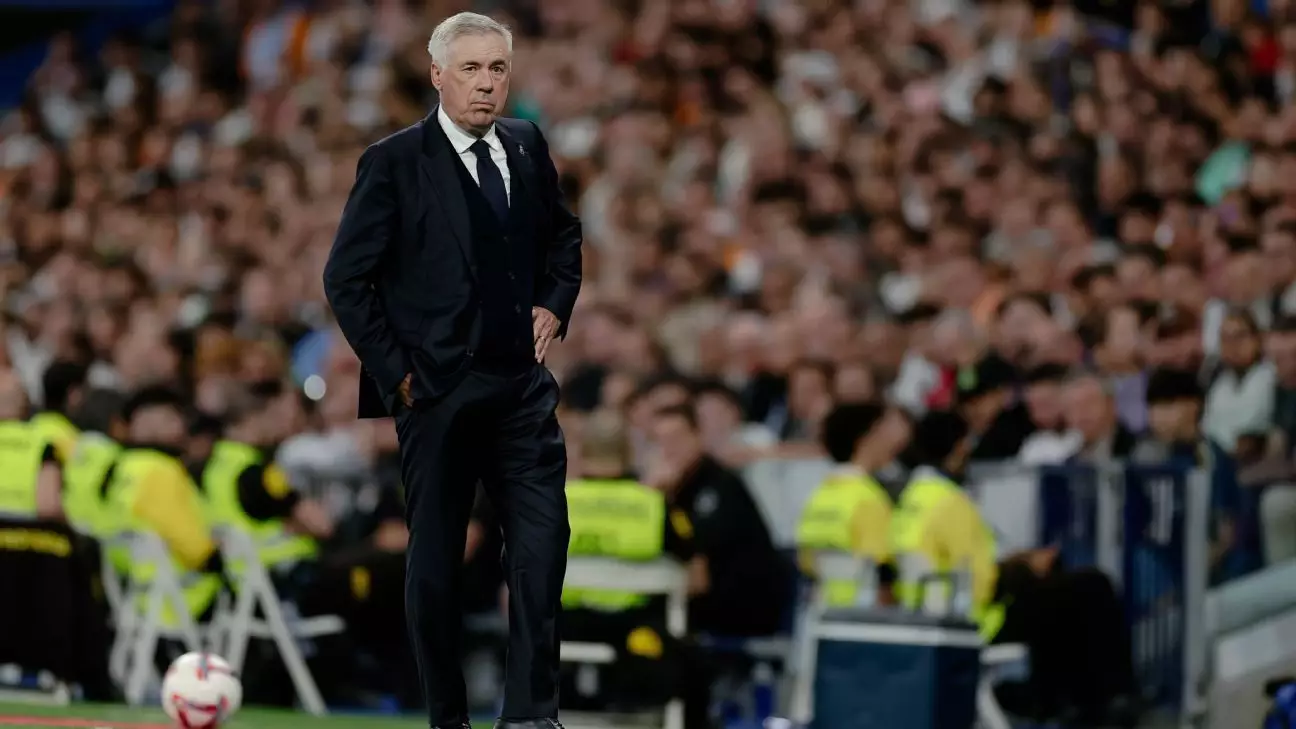Natural disasters exert profound effects on societies, drawing upon their resilience and communal bonds. The recent flash floods in Valencia, which resulted in the tragic deaths of at least 217 individuals, starkly reflect the harsh reality of nature’s fury. In the immediate aftermath, the question arises—can normalcy, particularly in the realm of sports, ever coexist with such devastating loss? As Real Madrid’s head coach Carlo Ancelotti remarked, it is difficult to discuss or participate in football amidst the overshadowing tragedy affecting countless lives. This sentiment is undoubtedly shared by many within the football community and beyond.
Natural disasters like the flooding in Valencia often disproportionately affect local communities, further complicating recovery efforts. Thousands of people find themselves displaced as homes and businesses suffer extensive damage. The sense of loss transcends tangible structures; it permeates the emotional fabric of the community. In the face of such calamities, the role of football—often seen as a diversion—comes under intense scrutiny. Should football continue to be played, or should it take a step back in respect to the suffering endured by the populace?
In the case of Valencia, LaLiga’s decision to postpone specific matches while allowing others to continue led to considerable debate among players, coaches, and fans. Ancelotti emphasized that no one wanted to take the field, underscoring a shared sentiment among coaches that football could—and should—pause during national emergencies. Atletico Madrid’s Diego Simeone echoed this stance by suggesting that proceeding with matches seemed illogical given the widespread sorrow and destruction experienced by many.
The juxtaposition of celebratory activities, such as football matches, against the backdrop of tragedy raises an ethical dilemma for sports organizations. Football is traditionally viewed as a form of entertainment, offering reprieve and joy. However, when tragedy strikes, the appropriateness of sporting events comes into question. As Ancelotti articulated, football becomes one of those “least important things” when lives are lost and communities are broken. The notion that the joy of a game should overshadow collective grief is increasingly being challenged.
In situations like that in Valencia, community engagement becomes pivotal. LaLiga’s collaboration with the Red Cross to raise funds for victims is a prime example of harnessing the power of sport for a greater cause. This serves to remind us that while the banners may wave and the matches may be played, the real responsibility lies in uplifting those in need. Sports can serve not only as a distraction but also as a means of fostering solidarity and support during challenging times.
Further, players can leverage their fame and influence to promote social awareness and invoke meaningful discussions around communal responsibilities. While the actions of professional players and teams come under the spotlight during crises, they also possess the potential to ignite hope and encourage support for those affected. The example set by LaLiga is commendable, yet it brings forth the question: how well can sports organizations balance the interests of their stakeholders with their responsibilities to society?
The Voices of the Players
The sentiments of players in the aftermath of the floods reflect a range of emotions, from confusion to concern over the decisions made by higher authorities regarding match scheduling. Although players are expected to uphold professionalism, many feel their voices are muted when it comes to significant decisions impacting their community. Lucas Vázquez, a full-back for Real Madrid, expressed frustration over the lack of agency among players regarding the continuation of matches, noting that coaches and players alike had no say in financial or logistical decisions made by the league.
This dynamic begs the question of whether players should have a more substantial role in discourse surrounding the ethics of sport during crises. Integration of player perspectives might pave the way for a comprehensive approach, ensuring that sentiments of solidarity resonate throughout the sport. Additionally, athletes can channel their experiences and visibility to bring attention to crucial societal issues.
The tragic events in Valencia prompt deeper consideration of the relationship between sports and societal responsibility. Football should not merely serve as entertainment amidst grief. Instead, it can be a powerful catalyst for community engagement and healing. The ideals of compassion and solidarity must take precedence, guiding the actions of not only sporting organizations but also players and fans alike. As the world looks towards recovery, the football community must harness its influence to reflect the resilience inherent in the human spirit amid adversity.

